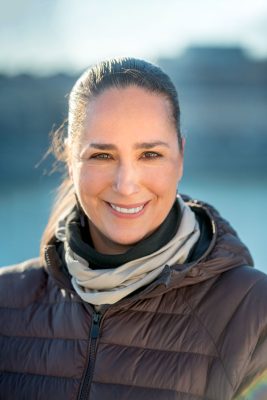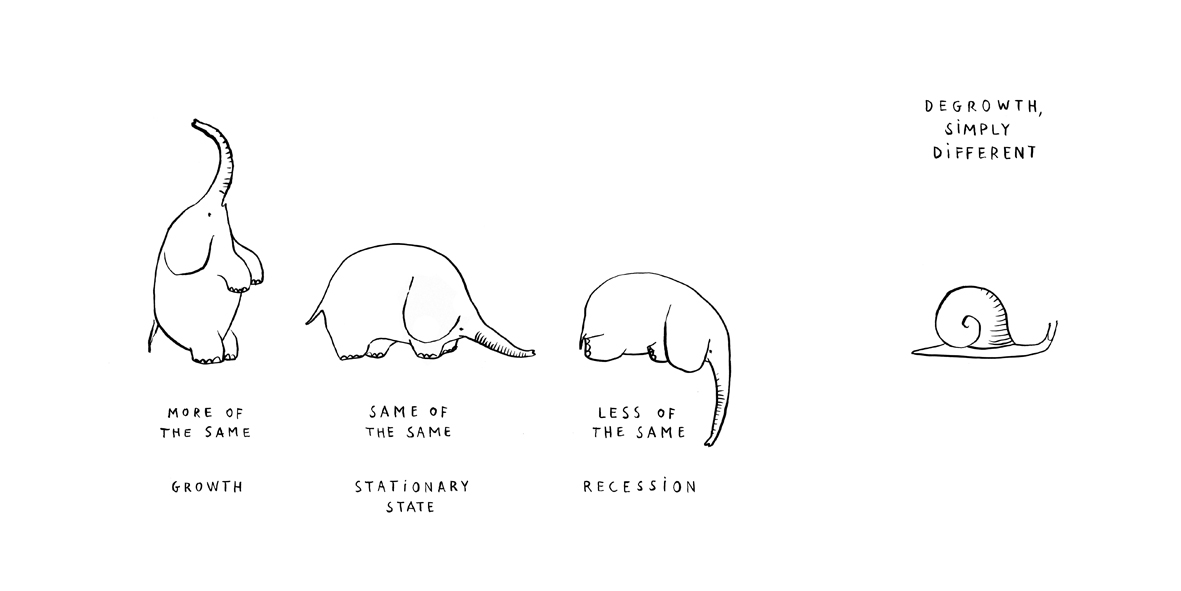I am an ecological economist, associate professor at the Corvinus University of Budapest in the Department of Decision Sciences within the Institute of Operations and Decision Sciences.
In my research I ask the question:
What does a Degrowth future look like? How do we get there? And what influences our decisions on the way?
For any action and non-action
you need a vision.
Why is it easier to imagine
a world on fire than
a radically different economy?

For any action
and non-action
you need a vision.
Why is it easier to
imagine a world on fire
than a radically
different economy?
If we asked the public about their vision of the future, many would confess to their worries and doubts. And this leaves us in a state of inaction. This is why it is crucial to create positive narratives.
Of course, intertwining systemic problems will not have a single, simple answer, but we have to start somewhere. That is where the backcasting technique can help by shifting our focus to the future instead of drifting with the mistakes of the present.

Image: Research and Degrowth
Today’s world is built on greed. I believe that it was not humankind that is born to selfishly exploit oneself and others, but the systems that we created. If we rediscover our ability to cooperate, we will be able to find the tools of change. The first step might be to realize that there is a correlation between building a just world and our own wellbeing.
Impelling the collective problem of unsustainability on the individual is far from fair. But changes in personal viewpoints can mark a new beginning; as they can send impulses to the system and find a new trajectory.
If we asked the public about their vision of the future, many would confess to their worries and doubts. And this leaves us in a state of inaction. This is why it is crucial to create positive narratives.
Of course, intertwining systemic problems will not have a single, simple answer, but we have to start somewhere. That is where the backcasting technique can help by shifting our focus to the future instead of drifting with the mistakes of the present.
Today’s world is built on greed. I believe that it was not humankind that is born to selfishly exploit oneself and others, but the systems that we created. If we rediscover our ability to cooperate, we will be able to find the tools of change. The first step might be to realize that there is a correlation between building a just world and our own wellbeing.
Impelling the collective problem of unsustainability on the individual is far from fair. But changes in personal viewpoints can mark a new beginning; as they can send impulses to the system and find a new trajectory.
If we asked the public about their vision of the future, many would confess worries and doubts. This is why it is crucial to create positive narratives.
Of course, intertw
If we asked the public about their vision of the future, many would confess to their worries and doubts. And this leaves us in a state of inaction. This is why it is crucial to create positive narratives.
Of course, intertwining systemic problems will not have a single, simple answer, but we have to start somewhere. That is where the backcasting technique can help by shifting our focus to the future instead of drifting with the mistakes of the present.
ining systemic problems will not have a single, simple answer, but we have to start somewhere. That is how the backcasting technique can lend a hand, because it places our focus in the future instead of rolling with the mistakes of the present.
Today’s world is built on greed. I believe that it was not humankind that is born to selfishly exploit oneself and others, but the systems that we created. If we rediscover our ability to cooperate, we will be able to find the tools of change. The first step might be to realize that there is a correlation between building a just world and our own wellbeing.
Impelling the collective problem of unsustainability on the individual is far from fair. But changes in personal viewpoints can mark a new beginning; as they can send impulses to the system and find a new trajectory.
The first decade of my career was spent in the field of social development policy. After realising that what we call development currently is neither sustainable, nor socially just, I turned to science for answers in 2011.
In 2014 I joined Corvinus as a faculty member. Since then, I have become an advocate of ecological economics in Hungary, and I strive to introduce this research field to both students and a wider audience.
My long-running podcast in Hungarian, Green Equality has more than 150 episodes as of today, and I also host of the English-language podcast of the European Society of Ecological Economics called Economics for Rebels.
Since the 1st of January 2022, I am vice-president of the European Society of Ecological Economics.
The first decade of my career was spent in the field of social development policy. After realising that what we call development currently is neither sustainable, nor socially just, I turned to science for answers in 2011.
In 2014 I joined Corvinus as a faculty member. Since then, I have become an advocate of ecological economics in Hungary, and I strive to introduce this research field to both students and a wider audience.
My long-running podcast in Hungarian, Green Equality has more than 150 episodes as of today, and I also host of the English-language podcast of the European Society of Ecological Economics called Economics for Rebels.
Since the 1st of January 2022, I am vice-president of the European Society of Ecological Economics.
Degrowth doesn’t talk about
recession or decline,
but exactly the opposite.
Degrowth doesn’t talk
about recession
or decline, but
exactly the opposite.
